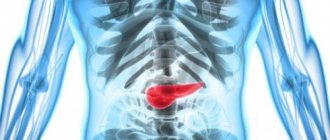Constipation is the retention of stool, temporary or permanent. Constipation can be a problem at any age, both infants and adults. This is a very common illness that many people are in no hurry to treat.
However, constipation can lead to serious consequences, which will be much more difficult to get rid of. Such a delicate problem as constipation is easiest to solve at the very beginning with the help of diet. Let's learn about proper nutrition for constipation.
General information
To normalize the functioning of the digestive tract with constipation of various etiologies, patients are shown diet No. 3.
Its main principles:
- sufficient fluid intake (at least 2 liters per day);
- gentle food that is well digested;
- exclusion of spicy dishes flavored with a large number of herbs and spices;
- an abundance of plant-based foods high in fiber;
- stimulation of intestinal motor function;
- warm food;
- fractional meals;
- minimizing irritation of the intestinal mucosa;
- exclusion of products that cause gas formation.
Remember, bowel movement is an indicator of human health. The norm for bowel movements is once a day for all ages. It is acceptable for adults to have a bowel movement once every two days, more than that is considered constipation, and the weight of the feces should be 100 - 200 grams. Defecation disorders are a sign of a malfunction of the intestines, which requires an urgent solution to the problem.
Tips for constipation: active lifestyle, getting rid of bad habits, eliminating stress factors, physiotherapy (intestinal massage), twenty-minute pine baths every other day. Regular jogging, swimming, and walking in the fresh air are recommended; cycling is contraindicated.
Treatment of constipation in older people
The complex of therapeutic measures aimed at combating constipation includes not only measures that eliminate this pathology, but also work with factors that provoke this disease. To treat constipation you need:
- Systematically take medications prescribed by your doctor.
- Perform therapeutic exercises.
- Use recipes and methods of traditional medicine.
- Follow a diet.
Therapy for constipation is impossible without following a special diet for constipation in older people and a menu. Often it is the right food that helps an elderly person cope with this disease.
In addition to the appropriate menu, an elderly person should also remember about physical activity. It is important to take walks, walk in the fresh air, and do simple gymnastic exercises in the morning. Unfortunately, physical activity is not available to those who are bedridden. Therefore, special attention should be paid to nutrition for constipation in bedridden elderly people.
Abdominal massage also helps well, which can be done at any free time. If necessary, the use of traditional medicine methods is allowed. For example, decoctions and tinctures of medicinal herbs are of considerable benefit and effectiveness. In order to prevent complications, it makes sense for older people to follow all the above recommendations in combination, otherwise the desired effect will not be achieved.
When following a diet for constipation in older people and adhering to a special menu, you must also remember to consume enough water. You should drink about two liters of clean water per day. This volume of fluid should become the norm not only for the period of following the diet, but also in the future. Due to this, it will be possible to prevent the recurrence of constipation.
We recommend
“Gymnastics for the elderly: the best exercises for various diseases” Read more
The role of fiber
Dietary fiber is the basis of plant structure.
As needed by the body, this nutritional component can be supplied along with water, carbohydrates, proteins and fats. Fiber absorbs and removes harmful substances from the gastrointestinal tract. The benefit of dietary fiber is the adsorption of water. As a rule, with constipation, stool that has a hard consistency stagnates in the human body. Dietary fiber, absorbing water, becomes jelly-like, envelops and softens the solid fractions of waste food. In addition, fiber helps increase the volume of feces, the number of beneficial bacteria in the intestines, enhances the enzymatic activity of microorganisms, and facilitates bowel movements.
Foods rich in fiber activate intestinal motility. They prevent the formation of gallstones, reduce blood sugar levels, lower blood pressure and the amount of estrogen, and fight excess weight.
How to get rid of constipation with fiber?
The easiest way is to enrich your daily diet with whole grains, fresh fruits, and vegetables. Dietary fiber can be consumed separately in the form of bran. Reception begins with 2 grams, gradually increasing the dose to 40 grams (on the 14th day of the body’s adaptation to the new product). The daily portion is divided into 3–4 doses.
Exceeding the permissible dose causes side effects: gas formation, flatulence, bloating. Fiber can be mixed into main dishes or diluted in drinks (juice, kefir, yogurt, fermented baked milk) immediately before consumption.
Remember, to effectively treat constipation, you need to drink at least 2 liters of water per day. Otherwise, if there is not enough fluid in the body, fiber can cause constipation.
Causes and consequences of constipation
Constipation occurs due to poor diet.
A huge number of people suffer from constipation, starting from infancy. Constipation is not considered a disease, but rather a symptom or a consequence of lifestyle.
However, chronic constipation and constant use of laxatives can lead to hemorrhoids, anal fissure, and also provoke other diseases that will not be easy to cure.
Proper nutrition for constipation, physical activity and drinking regimen can help cope with the problem. The causes of constipation have long been known:
- Poor nutrition. Currently, the habit of eating right remains only among a few. Cafes and pizzerias are opening at every step, where you can quickly and satisfyingly buy something. But such a diet leads to a lack of fiber, weakened intestinal motility and constipation.
- Sedentary work. The habit of sitting for 8 hours, and then getting home by car and taking the elevator leads to physical inactivity, weakening of muscles, stagnation of blood in the pelvic organs, constipation and often hemorrhoids.
- Pregnancy. During pregnancy, constipation almost always occurs due to the active production of hormones that relax muscles. Intestinal peristalsis weakens. If during pregnancy a woman limits herself to drinking due to edema, constipation may worsen and last for 2-3 days.
- Diseases of the gastrointestinal tract. Some diseases can lead to constipation, for example, diseases associated with stagnation of bile. Food is poorly digested and takes a long time to move through the intestines.
- Stress. Stress can cause both diarrhea and constipation. Constipation often occurs due to nervousness in an unfamiliar environment. For example, many children in a health camp cannot go to the toilet and endure it for a long time.
- Intestinal operations. Sometimes constipation is caused by decreased intestinal motility, but in this case, constipation may also be neurogenic due to fear of pain and blood during bowel movements.
- Depending on the cause, constipation can be divided into spastic and atonic. With atonic constipation, peristalsis is very weak, so stool moves slowly.
Spastic constipation is caused by a spasm of part of the intestines, as a result of which stool cannot move further.
Authorized Products
To normalize intestinal function, the patient’s daily diet is enriched with fiber. It is found in dried fruits, fresh vegetables and fruits, and cereals. In addition, food should be fortified and contain potassium and magnesium. These macroelements stimulate intestinal motility and improve the conductivity of its nerve fibers.
- Meat and fish. A diet for constipation limits the consumption of animal products. To satisfy the body's need for protein, it is allowed to take easily digestible poultry, rabbit, lean river and sea fish. The preferred cooking method is boiling, stewing, steaming.
It is recommended to prepare cutlets and meatballs based on meat and fish.
- Fermented milk products, milk. Have a beneficial effect on the digestive system. Cottage cheese, kefir, fermented baked milk, yogurt, curdled milk, sour cream, processed cheese are a storehouse of probiotic cultures that normalize the intestinal microflora and its motor function, and contribute to the formation of stool of normal consistency.
Milk has a laxative effect. However, people with lactose intolerance should limit their consumption of the drink, as it can cause diarrhea.
- Liquid dishes. Allowed: non-rich broths based on poultry, pork, rabbit, soups (including vegetables), borscht (beetroot, green).
- Juices and decoctions. To normalize stool, it is recommended to use compotes based on apples, apricots, plums, and rosehip decoction. In addition, beetroot juice or a glass of cold water on an empty stomach with honey (a teaspoon) enhances intestinal peristalsis. Drinking apple, tomato, apricot and carrot juices is encouraged throughout the day.
- Fruits and vegetables. They serve as the main source of fiber, which ensures the normal consistency of stool. To normalize stool, it is recommended to enrich the diet with citrus fruits, plums, apricots and dried fruits based on them (dried apricots, raisins, prunes).
Effective vegetables include tomatoes, cabbage, beets, carrots, pumpkin, dill, parsley, zucchini, and tomatoes.
Apples have a special place in the fight against constipation. If you consume 1-2 pieces daily on an empty stomach, problems with bowel movements will go away on their own.
An effective remedy in the fight against constipation are dates (both dried and boiled) and kiwi, the latter, in turn, is recommended to be eaten fresh without the skin.
To speed up the process of restoring the evacuation function of the intestine, these products are recommended to be consumed simultaneously in the form of combinations. For example, fruit salads with plums, citrus fruits, apples, kiwi.
- Bakery products. It is allowed to consume only coarse varieties with bran, oatmeal and biscuit cookies, and non-bread-type baked goods. Preference should be given to bread that is aged for 12 hours, preferably rye, without yeast.
Baking made from premium wheat flour has a cementing effect in the human intestines, making defecation difficult. Therefore, you should immediately stop consuming such products.
- Vegetable and animal fats. They prevent the “sticking” of toxins to the intestinal walls and ensure gentle evacuation of waste food.
- Cereals. The most fiber is found in oats, wheat, barley, and rye.
Remember, it is impossible to choose one diet to get rid of constipation, since this malfunction in the intestines is entirely individual in nature.
Mandatory conditions for normalizing the evacuation function of the intestines are adherence to a split diet (at least 5 times a day) with 2.5 - 3 hour breaks between meals and drinking plenty of fluids (over 2 liters per day). Interestingly, the cooking technique (degree of grinding) does not matter.
Alcohol
Alcoholic drinks are one of the causes of constipation. Alcohol taken in large quantities leads to dehydration of the body, thereby increasing the loss of fluid, which is lost along with urine. Against the background of a small supply of clean water and its rapid loss, the likelihood of constipation increases many times over.
At the same time, there are no studies that directly study the effect of alcoholic beverages on the formation of constipation. In addition, some people note that, on the contrary, they develop diarrhea while drinking alcohol. Most likely, this is due to the individual characteristics of the body. Those people who suffer from stool retention after drinking alcohol can be advised to drink a glass of water with each serving of alcohol.
Prohibited Products
First of all, the intake of food that causes flatulence, fermentation and putrefactive processes in the intestines is limited. In addition, it should not irritate the stomach. For spastic constipation, it is prepared in the form of a puree. It is recommended to avoid eating viscous cereals and foods containing a lot of starch and tannin, due to their slow movement in the intestines. Avoid foods that “overstrain” the gallbladder, as they increase stress on the digestive tract and impair intestinal motility.
Avoid eating rice and pasta, which cause a fixing effect.
List of prohibited products:
- bananas;
- mushrooms;
- mayonnaise;
- alcohol;
- meat and fish of fatty varieties;
- garlic, radishes, turnips, onions;
- fried eggs;
- legumes (limited);
- flour dishes (especially fried pies, dumplings, dumplings);
- pastries from butter dough;
- blueberries, quince, dogwood;
- rice (in excess);
- smoked dishes, canned food;
- strong tea, coffee;
- chocolate, cream dishes;
- pepper, horseradish, mustard;
- jelly;
- jelly, marmalade, pastille;
- slimy porridge.
If for some reason it happened that prohibited products were consumed, measures must be taken to neutralize their fastening effect. You can use laxatives, do an enema, or include foods recommended for constipation in your diet. If you leave everything to chance, all efforts to eliminate the problem, which have been achieved for months, will come to naught.
Contraindicated cereals
Some cereals should not be eaten if you are constipated, as they have the opposite effect, causing constipation. They should be avoided during therapy. For example, rice contains a large amount of starch, which has fixing properties. Semolina porridge will also not help with constipation, but will only make it worse.
Constipation occurs from eating corn, which is possible when cooking stale cereals. This can be caused by intolerance to the product and its excessive consumption.
Diet for constipation
This is a combination of ten fasting days, where food products that have a laxative effect and an astringent effect are changed in turn.
Day No. 1
Vegetable salad of apples, greens, cabbage, beets and carrots, dressed with olive oil.
Day No. 2
Apples, oatmeal.
Day No. 3
Prunes, low-fat cottage cheese (5%), apples.
Day No. 4
Apples baked in the oven can be added with honey.
Day No. 5
Buckwheat porridge with the addition of herbs and vegetable oil.
Day No. 6
Green peas, boiled beans, greens.
Day No. 7
Vegetarian cabbage rolls with carrots and buckwheat.
Day No. 8
Greens (dill, parsley), noodles made from coarse flour with cottage cheese.
Day No. 9
Dietary borscht (chicken fillet) with beans.
Day No. 10
Fruit and berry compote, wheat porridge.
Proper nutrition, an active lifestyle and sufficient water are the three components on which the health of the digestive system rests.
FAQ
How does an anti-constipation diet affect your health?
In addition to solving the main issue, it helps to get rid of accompanying symptoms: bloating, abdominal pain. In addition, it normalizes the functioning of the gastrointestinal tract, prevents the development of intoxication and diseases that contribute to constipation (gastritis, cholecystitis), and normalizes intestinal microflora.
By following a dietary diet, the condition of hair and skin improves, weight decreases, and the body receives the necessary amount of vitamins and minerals.
What are the consequences of irregular bowel movements?
Irregular bowel movements are dangerous due to the following complications:
- diseases of the rectum (paraproctitis, fissures, hemorrhoids);
- malignant tumors;
- chronic inflammation of the colon;
- secondary colitis;
- megacolon (elongation or expansion of the intestine);
- proctosigmoiditis;
- intestinal obstruction.
Prolonged stagnation of contents in the cecum increases the risk of backflow into the small intestine (reflux enteritis). Constipation leads to the formation of carcinogenic substances that aggressively affect the walls of the organ. As a result, the person feels unwell, loses weight before our eyes, and goes to the toilet with blood. These alarming symptoms suggest the occurrence of a colon tumor.
How does an active lifestyle affect constipation?
Intense motor mode (running, swimming, hiking and skiing, physical activity) stimulates intestinal activity, increases body tone, strengthens abdominal muscles, and normalizes the neuropsychic background.
How constipation manifests itself
So-called spontaneous bowel retention is relatively harmless. They usually occur due to the consumption of a large amount of refined food at once: white bread, viscous cereals, egg, fish or meat dishes. Food that does not contain fiber and probiotics takes a long time to digest, forms dense stool and reduces intestinal tone. The development of constipation in such a situation is facilitated by water deficiency.
Common symptoms of bowel dysfunction:
- heaviness in the stomach;
- the need to push to empty the intestines;
- incomplete or difficult exit of feces.
The problem is usually eliminated by taking a laxative and does not recur with diet correction.
In young children, intestinal dysfunction usually occurs when new foods are introduced into complementary foods, as a result of severe fright. Probiotic preparations or folk remedies help improve motor skills.
Chronic constipation is determined by the following criteria:
- bowel movements less than 3 times a week;
- frequent sensation of a foreign element in the rectum;
- hard stool;
- regular need to push during bowel movements;
- frequent need to resort to laxatives or abdominal massage.
Regular constipation (constipation) is a serious symptom. In some cases, it indicates serious disturbances in the functioning of the body.
Laxatives or herbs?
What method of dealing with constipation is considered the most effective if there is no independent urge to defecate?
Laxatives are effective at first, when the issue is acute and needs to be resolved as quickly as possible. However, with prolonged use, they cause addiction to the body and lead to “lazy bowel” syndrome, which is characterized by a weakening of its motor activity.
Synthetic substances that have a laxative effect include: phenolphthalein, isafenin, bisacodyl.
Side effects from taking laxatives (with long-term abuse):
- intestinal obstruction;
- allergic reactions (rash, itching);
- vomit;
- cancer of the gastrointestinal tract;
- drug diarrhea;
- metabolic disorders;
- dysfunction of the small intestine, colitis.
Preparations made from cellulose derivatives (fiber), semi-synthetic and natural carbohydrates are considered relatively harmless. A prerequisite for their observance is the intake of a sufficient amount of fluid into the body (2 - 3 liters per day).
Medicinal herbs are the most harmless way to normalize stool. However, the biologically active substances included in the collection have a laxative effect due to the cumulative effect. To achieve a lasting result, it will take from 5 to 20 days of regular drinking of the drug.
Medicinal plants for constipation:
- Tangut rhubarb root;
- alder buckthorn bark;
- stalks of knotweed;
- kelp sugar;
- senna holly leaf;
- roots of field steelweed;
- dill herb;
- joster fruit;
- rhizome of licorice and horse sorrel;
- stems of centaury umbelliferum;
- Agave leaves.
Constipation is often accompanied by bloating, so to minimize discomfort, taking carminative herbs is recommended: dill, chamomile flower baskets, zori officinalis root, caraway seeds.
An effective folk remedy for irregular bowel movements is a combination of dried fruits (100 grams each of raisins, dried apricots, figs, prunes), 100 grams of honey, 5 grams of dry senna leaf. Use 10–15 grams of the composition daily during the day or at night.
Safe ways to deal with constipation
To painlessly eliminate the problem, you will need 2 tbsp. l. steam wheat or oat bran in a glass of hot milk. Pour the mixture into a thermos. After 2 hours, cool the broth slightly and drink along with the bran. The effect will occur within 2–3 hours.
Another remedy: 2 tbsp. l. pour senna herbs and 6 prunes with a glass of boiling water. Leave until the dried fruits swell, strain and drink the liquid. Then eat prunes. In a few hours, constipation will only be a memory.







